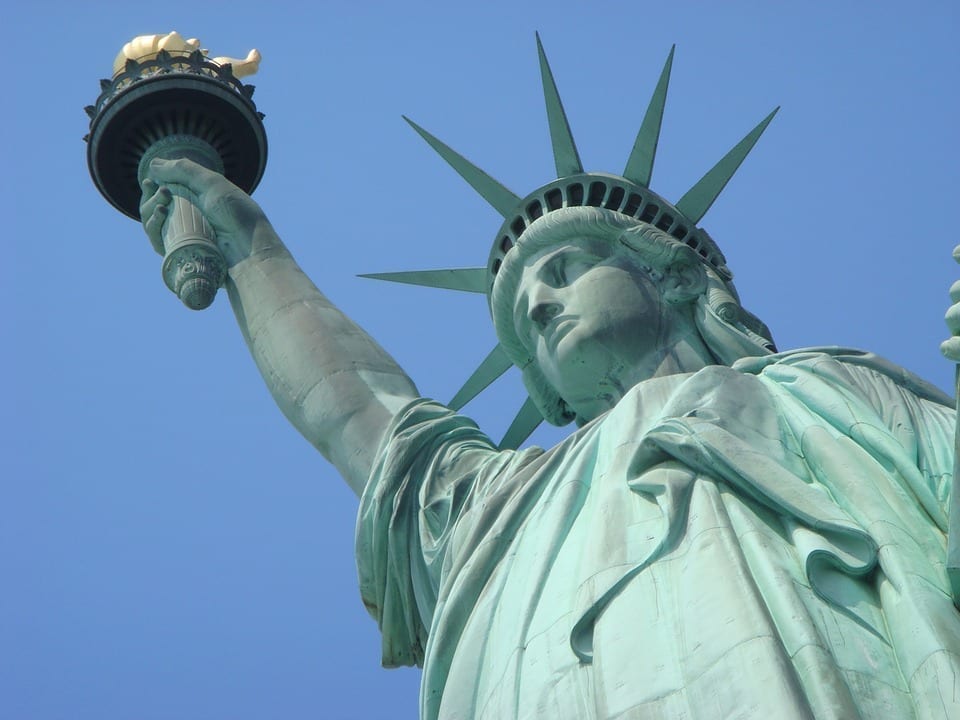Freedom has many meanings, but it may come down to a basic choice between Freedom To or Freedom From. In a pluralistic society, it’s hard to have both.
It’s hard to imagine a more iconic American concept than freedom, isn’t it? “Freedom” is one of those grand words like “love” or “justice,” though. We all have some idea of what it means, at least to us, but it’s devilishly hard to define it in a way that works for everybody. Perhaps it’s difficult because there are two main kinds of freedom: Freedom To or Freedom From. Much like the social cost of freedom that we talked about in Part 1, these two perspectives on freedom can be mutually exclusive.
When we say that America is the land of the free, do we mean Freedom To or Freedom From? Historically, it’s some of both. When the founding documents for the new United States were drafted, it was originally thought that a specifically enumerated Bill of Rights wasn’t needed because the system of checks and balances and the idea of a government based on enumerated powers would naturally protect the citizenry from abuses. However, when states like Rhode Island and North Carolina refused to ratify the new Constitution without a specific bill of rights, James Madison sifted through many proposed amendments and came up with a list to help push the project along.
Some rights, like those enumerated in the First Amendment, are about Freedom To. The rights of free speech, assembly, to petition for redress of grievances, and to worship as you choose, all concern your ability to act in a manner (theoretically) unhindered by the heavy boot of law. Some aspects of the Bill of Rights also address Freedom From. The Third Amendment guarantees your freedom from having to quarter troops in your home, while the Fourth, tattered as it is, was meant to guarantee your right to be free from unreasonable search and seizure.
Choosing Freedom To or Freedom From can mean having to forego one or the other. In her book The Handmaid’s Tale, Margaret Atwood’s fictional country of Gilead is, for the handmaids, an exercise in Freedom From. They once had all the freedom women enjoy now, but were later relegated to reproductive slavery. “Now we walk along the same street, in red pairs, and no man shouts obscenities at us, speaks to us, touches us. No one whistles. ‘There is more than one kind of freedom,’ said Aunt Lydia. ‘Freedom to and freedom from. In the days of anarchy, it was freedom to. Now you are being given freedom from. Don’t underrate it.’” Some interpretations of freedom aren’t very free at all.

The ongoing American debate between the social primacy of secular civil rights versus a newer interpretation of religious freedom is playing out in a way that makes it hard to tell which will prevail, Freedom To or Freedom From. Progress on civil rights for more Americans through recognition of legal same-sex marriage brought changes that some would prefer to reject. On one hand, gay couples now have the freedom to celebrate their union with all the traditional trappings. On the other, this freedom collided with the idea that economic and business transactions (such as baking a cake for a gay wedding, or a business paying for insurance that covers birth control) are functionally the religious practices of business owners, and that non-discrimination laws and insurance benefits are a form of government coercion. Freedom from coercion is important; after all, that’s why we have the Establishment Clause – so the freedom of a religious majority doesn’t trump the rights of others. How we decide the winner of this round in the culture war, as well as the relative merits of Freedom To or Freedom From, will speak volumes about our values as a society.
One big problem with freedom is that you have to deal with how other people use theirs. But what happens when freedom and opportunity go away? Tomorrow’s final part in this freedom triptych takes a look at the coming slow crisis.


Join the conversation!